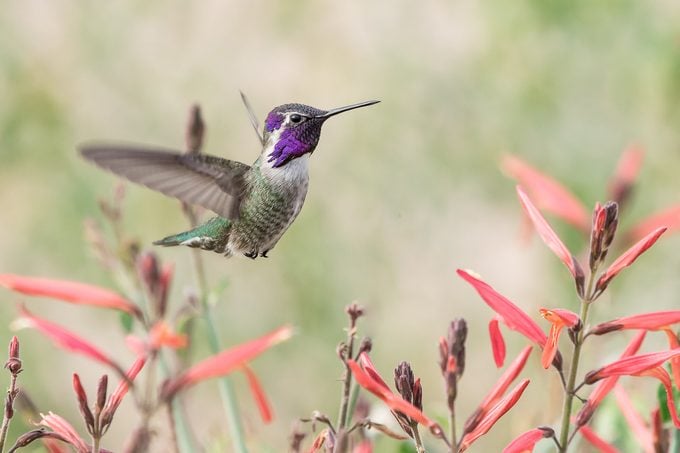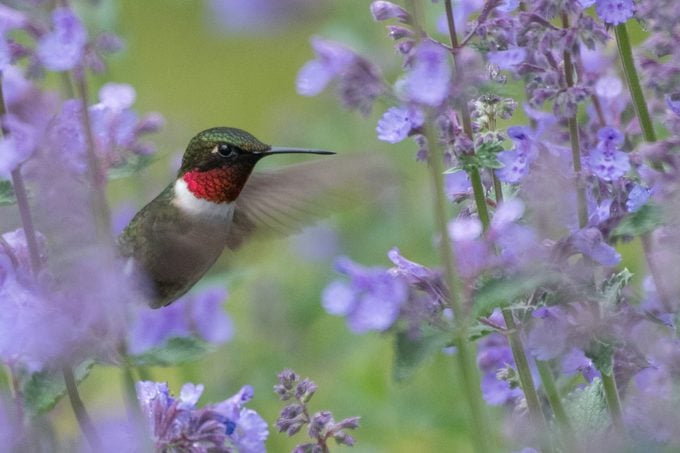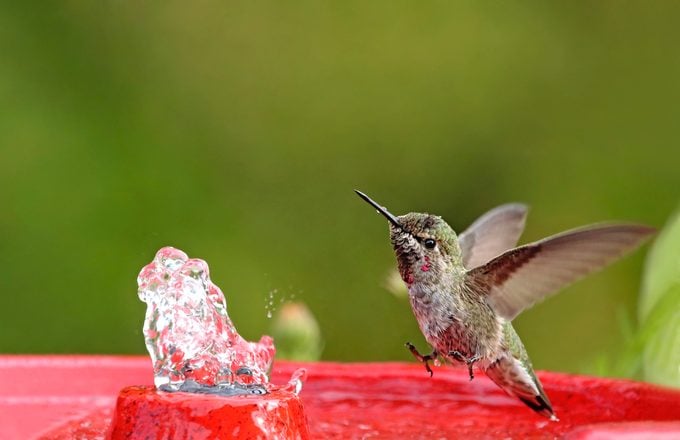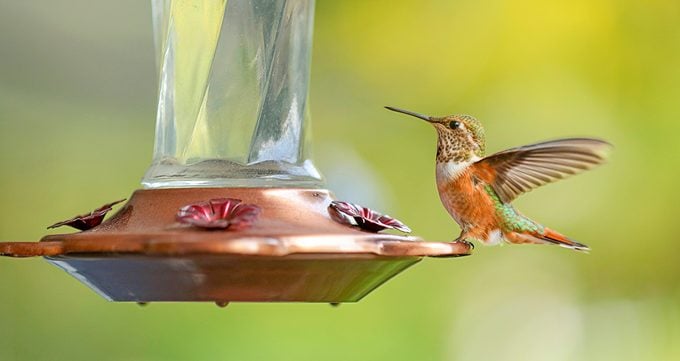How Long Do Hummingbirds Live?
Updated: Jan. 18, 2024
How long do hummingbirds live? What determines their survival? Here's how old the hummingbirds in your yard grow to be—and how you can help them.
On This Page
How Long Do Hummingbirds Live?

“Two kinds of hummingbirds visit our yard: black-chinned hummingbirds and Costa’s hummingbirds. One is a young male Costa’s whose throat patch is just beginning to show. I always wonder how old he is. What is the lifespan of a hummingbird?” asks Birds & Blooms reader Terry Burkhart of Landers, California.
Birding experts Kenn and Kimberly Kaufman write, “These tiny creatures don’t live long. Based on banding studies, 7 or 8 years is a ripe old age for most hummingbirds in the wild. Ruby-throated hummingbirds have lived 9 years. And one banded female broad-tailed hummingbird in Colorado made it to age 12.
A zoo that’s properly set up to care for these birds may stretch longevity. Two black-chinned hummingbirds at the Arizona-Sonora Desert Museum in Tucson lived to 13 or 14 years old. We don’t have much information on the Costa’s hummingbird. But a male with his gorget (throat patch) just developing would be a little less than 1 year old.”
What Factors Affect a Hummingbird’s Lifespan?

Dr. Kevin McGowan, senior course developer for the Cornell Lab of Ornithology Bird Academy, agrees that hummingbirds—like many smaller songbirds—aren’t long-lived. “Especially small birds, they tend to be readily eaten,” he says. “That’s a problem. So generally, with hummingbirds or sparrows or chickadees, you can expect the maximum to be around ten years. If they make it to ten years, that’s really good.”
Most species of hummingbirds breed when they’re around 1 year old. For juvenile hummingbirds, leaving the nest for the first time means constantly searching for nectar. According to Kevin, food availability is one of the biggest factors affecting how long hummingbirds live.
“They need more food, more often, than most birds,” he explains. “That could be a big hazard for birds that are this quick. Failure to find food is probably a huge source of death for them.”

It might be difficult to believe given their tiny size, but some birds and other backyard predators do eat hummingbirds. Kevin goes on to say that sharp-shinned hawks, Mexican jays, spiders, and praying mantises will all kill hummingbirds…if they’re able to catch them. Outdoor cats, he adds, are one of the biggest risks to hummingbirds’ longevity—and unfortunately, they’re often quick enough to bring down these fast-moving birds.
How You Can Help Hummingbirds

With food availability as such a major factor in survival, it’s no surprise that hummingbirds compete fiercely for resources. Kevin explains: “Think about if you had a bag of flowers, and you could go around and get a sip from each flower that gives you enough for half of a meal,” he says. “The flowers will regenerate that nectar, but it takes a long time.” In that context, the bird’s instinct to defend is understandable.
For those hoping to help their backyard hummingbirds live longer, Kevin recommends keeping feeders high enough off the ground that predators won’t be able to reach them. In addition, he says backyard birders can add a bird bath to provide hummingbirds with a source of water, too.
Next, discover the truth about common hummingbird myths.
Why Trust Us
For nearly 30 years, Birds & Blooms, a Trusted Media Brand, has been inspiring readers to have a lifelong love of birding, gardening and nature. We are the #1 bird and garden magazine in North America and a trusted online resource for over 15 million outdoor enthusiasts annually. Our library of thousands of informative articles and how-tos has been written by trusted journalists and fact-checked by bird and garden experts for accuracy. In addition to our staff of experienced gardeners and bird-watchers, we hire individuals who have years of education and hands-on experience with birding, bird feeding, gardening, butterflies, bugs and more. Learn more about Birds & Blooms, our field editor program, and our submission guidelines.
Sources
- Kenn and Kimberly Kaufman, official birding experts for Birds & Blooms and authors of the Kaufman Field Guides Series
- Dr. Kevin McGowan, senior course developer for the Cornell Lab of Ornithology Bird Academy




















